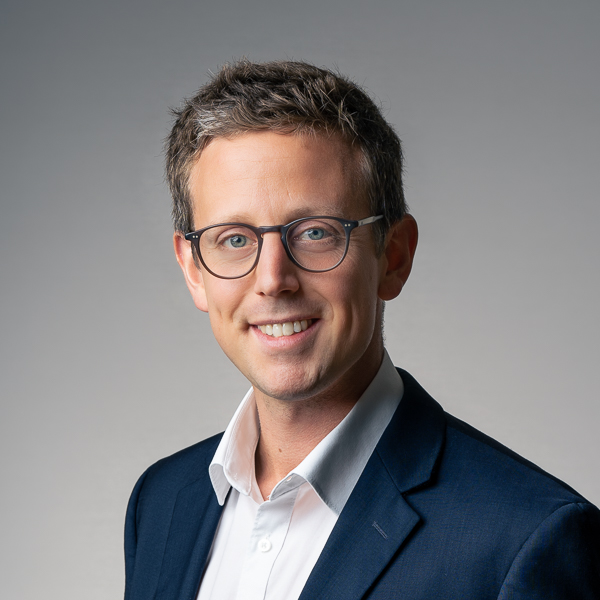HVDC - VSC system
Our HVDC - VSC systems training
Welcome to our HVDC-VSC training program, designed to provide a comprehensive understanding of the issues and solutions associated with this key technology for the energy transition. Through this 5-day course, you will discover the fundamentals, methodologies and challenges associated with high-voltage direct current (HVDC) power transmission systems, with a particular focus on VSC systems.
Introduction
Driven by ambitious climate targets, HVDC-VSC technology is playing an increasingly important role in current and future power transmission systems. VSC technology is crucial in its contribution to the energy transition, as it offers new opportunities for increasingly interconnected energy markets. However, the technology is developing rapidly, and the complexity of these projects requires detailed engineering expertise. The aim of this 5-day training course is therefore to introduce participants to the principles and challenges of HVDC-VSC technology, and to present basic methodologies and practical technical experience for VSC projects.
Topics covered
The training course, organized in close collaboration with RTE and RTE international, covers the following topics:
- Introduction to Power Systems
- Introduction to VSC-MMC technology
- Modeling and simulation of HVDC-VSC systems with EMTP
- VSC-MMC station control and protection
- Introduction to DC cable technology
- HVDC-VSC project specifications
- Maintenance of HVDC converters
Target audience
This course is designed for engineers, researchers, operators and maintenance personnel who work or plan to work on HVDC projects and who wish to gain a deeper understanding of this technology. It provides up-to-date technical expertise on HVDC-VSC projects. This course is also an opportunity to meet and share with experts and colleagues working in the HVDC field. Please note that the number of participants is limited.
Training course structure
The training course lasts 5 days (Mon-Fri). Training starts at 9:00 am and ends at 5:00 pm every day (except Fridays). Lunch breaks are provided from noon to 1:00 pm, the cost of which is included in the course fee.
A group dinner for participants and trainers is planned for Thursday. Training presentations and support materials will be provided.
Licenses
Temporary EMTP licenses will be provided to participants. EMTP will be used to illustrate models and concepts, and to evaluate the performance of HVDC-VSC systems.
Procedure
Date
May 11 to 15, 2026
Duration
5 days
Prices
6100$ excluding taxes (prepayment mandatory)
Discounts for students and academics on request
Conditions
RTE international conditions apply. The number of participants from each company is limited to ensure a diversity of participants.
Type of training
In-class training. A training certificate will be issued to all participants at the end of the course.
Location
1300 West W. T. Harris Blvd. • Charlotte, North Carolina 28262
Register for our training course
Fields marked with an asterisk are required.
We collect this data for the sole purpose of registering you for our HVDC training course.
Trainers

Markus Vor dem Berge
Director of Power Electronics and Studies
Markus Vor dem Berge is Director of the Power Electronics and Studies Service Line. He joined RTE international in 2020.
He previously worked at Siemens AG as a system design engineer on HVDC PLUS technologies. In particular, he led the work on several HVDC VSC projects as sub-project manager in Europe. He was also technical project manager for the VSC Bipole 2000 MW, ±525 kV for onshore and offshore applications.
Markus Vor dem Berge holds a Master’s degree in Electrical Engineering, Electronics and Communication Technology, Power Engineering from the University of Aachen.

Sébastien Dennetière
HVDC expert & senior technical advisor at RTE international
Sébastien Dennetière has ten years’ experience in HVDC and almost two decades’ experience in electrical engineering. His expertise in HVDC projects ranges from planning to maintenance. He contributes to several professional organizations, such as CIGRE, IEEE and IEC.
In January 2010, he joined the French TSO RTE (Réseau de Transport d’Electricité) where he is currently involved in power system simulation and HVDC projects as a technical expert. One of his main tasks is to integrate HVDC/FACTS equipment into the French grid. He oversees the technical coordination of HVDC integration studies in France and abroad. He was responsible for the development of detailed HVDC and wind models in Uruguay and for the development of specifications for the coordination of 2 HVDC systems in Norway for the “Equinor Johan Sverdrup VSC multivendor interoperability” project.
From 2004 to 2008, he worked at EDF’s research center in the field of insulation coordination and electrical system simulations. From 2002 to 2004, he worked at IREQ (Hydro-Québec) on research and development activities related to the simulation and analysis of electromagnetic transients.
Sébastien Dennetière graduated from École Supérieure d’Électricité (Supélec) France in 2002. He received his master’s and doctorate degrees from École Polytechnique de Montréal in 2003 and 2017, respectively.

Pierre Rault
HVDC expert at RTE international
Pierre Rault has ten years’ experience in HVDC and has supported numerous related projects. His expertise has led him to participate in working groups responsible for defining HDVC standards.
He has been an expert power system engineer with RTE international since 2018, working primarily on the EQUINOR Johan Sverdrup project. In this position, he participates in the philosophy of controlling the coordination of the project’s two HVDC links. He monitors the installation and commissioning of the replicas. He also carries out and analyzes parallel tests with the control replicas.
At the same time, he is secretary of CIGRE WG B4.70: “Guide for Electromagnetic Transient Studies involving VSC converters” and a member of CIGRE B4-58: “Control Methodologies For Direct Voltage And Power Flow In A Meshed HVDC Grid”. In addition, he is the French representative on the TC8 / TC22 / TC115 committees, where he monitors and reviews new VSC-HVDC-related standards. He is also a member of TC115 – WG15 – Functional Specifications for HVDC Grid Systems.
Pierre Rault has been studying and dealing with HVDC topics since his PhD on VSC-HVDC multi-terminal network control strategies. Previously, he worked at GIE IDEA (EDF/Schneider Electric/G2Lab) on the connection of wind farms. He was in charge of the necessary requirements and thus reviewed the compliance criteria for network codes. He also developed a methodology for reactive power management in wind farms.
Pierre Rault is fluent in English. He holds a PhD from Ecole Centrale de Lille, France and a Master’s degree from Institut National Polytechnique de Grenoble, France.

Hani Saad
Senior HVDC Expert
Hani Saad received his B.Sc. and Ph.D. degrees in electrical engineering from the Polytechnique of Montréal, Canada in 2007 and 2015, respectively. In 2015, he received the best Ph.D. thesis award from Polytechnic of Montreal for his thesis titled Modeling and Real-Time Simulation of VSC-MMC Based HVDC Transmission Systems.
He has been working in the field of HVDC for more than 15 years with RTE (French TSO), RTE-International and as an independent consultant. He is involved in the world’s largest HVDC-VSC systems, EMT studies and grid codes to support different stakeholders in the field of HVDC and grid integration of renewable energy systems.
He is involved in several expert groups such as IEEE Task forces, ENTSOE EG and Cigré working groups, and member of the Cigre B4 advisory group, convenor of Cigré B4-84 related to integration of energy storage in HDVC systems and the French representative of Cigré National Committee B4.

Marco Schudel
Power Electronics Engineer
Marco Schudel is a power electronics engineer with diversified experience in the electrical industry, mainly focused on technical coordination and project management. Currently employed at RTE Réseau de Transport d’Electricité for ten years, Marco holds the position of project engineer in power electronics. His responsibilities include technical coordination of experts for HVDC converter stations, participation in procurement processes including bid analysis, evaluation and technical negotiation. He has also carried out real-time and off-line electromagnetic transient studies and participated in commissioning stages.
Marco has also worked on the definition and modeling of electricity markets, as well as load-flow studies, giving him a systemic vision of the power grid.
With solid experience in technical coordination, project management and modeling, Marco brings valuable expertise as a trainer, offering participants in-depth insight into the technical challenges and best practices in power electronics and energy project management.

Valérian Bayle
HVDC Operations & Maintenance Engineer
Valérian Bayle is an electrical engineer specialized in High Voltage Direct Current (HVDC) systems and power electronics. With over seven years of experience at RTE (Réseau de Transport d’Électricité), he has developed an expertise in HVDC operations, maintenance, and asset management.
Currently serving as a HVDC Operations & Maintenance Engineer, Valérian is responsible for the IFA1 link (2x1000MW, LCC, Bipole, GE). His role includes asset management (including refurbishment projects), troubleshooting analysis, and hardware in the loop testing. He also works on the operation and maintenance of IFA2 link (1GW VSC-CTL, Hitachi) and FIL link (2×600 MW, VSC-MMC, GE) and he is RTE’s expert for GE HVDC C&P.
Valérian holds a Master of Science in Electrical Power Engineering from KTH Royal Institute of Technology and an Ingénieur degree from CentraleSupélec.
Training program
Day 1 – Introduction and HVDC Technology Basics
9.00 – 12.00
- Introduction Session: RTEi, training overview, expertise RTE
- Overview of HVDC technology – evolution, key drivers and challenges
- HVDC MMC station main equipment description
- Q&A
12.00-13.00 : Lunch break
13.00 – 17.00
- HVDC connection requirements overview & HVDC System applications 6. Basics of Power Electronics in EMT – Introduction to EMTP
- Q&A
Day 2 – Project management and specification of HVDC projects
9.00 – 12.00
- Basic Design approach
- Tender Principles
- Technical Specifications
- Q&A
12.00-13.00 : Lunch break
13.00 – 17.00
- Game
- Project Execution
- Q&A
Day 3 – HVDC converter design, introduction to C&P aspects and EMT studies
9.00 – 12.00
- Introduction to HV cable technology
- Cable systems in HVDC projects
- Qualification and testing
- Installation, Operation and maintenance, monitoring
- HVDC converter design principles
- Q&A
12.00-13.00 : Lunch break
13.00 – 17.00
- Introduction to HVDC control and architecture
- General description of VSC controls
- Specific upper-level and low-level controls for MMC converters
- Description of Grid Connected and Grid Forming control
- Excursus: Practical experience of HVDC studies to improve power oscillation in the network
- Q&A
Day 4 – HVDC-VSC design studies and Control and Protection aspects
9.00 – 12.00
- HVDC system design studies
- General overview of converter protection strategy and implementation in real systems
- HVDC-VSC behaviour during AC fault events (balanced and unbalanced conditions)
- DC side transients analysis of typical DC faults: pole-to-ground and one-phase- to-ground faults
- Q&A
12.00-13.00 : Lunch break
13.00 – 17.00
- Introduction to transients during start-up and shut-down sequences
- EMT studies for the design and operation HVDC system
- Q&A
Evening: Group dinner in Lyon
Day 5 – Maintenance of HVDC-VSC systems and integration in AC grids and final Q&A session
9.00 – 12.00
- Introduction to the maintenance principles of HVDC-VSC systems
- O&M Team Structure, Roles and Responsibilities, and Required Infrastructure, Facilities and Systems to Support O&M Activities
- Maintenance of HVDC-VSC converter stations, focus on HVDC specifics: Power electronics, auxiliary systems (cooling, climate) and controls
12.00-13.00 : Lunch break
13.00 – (before) 15:00
- Maintenance specifications, spare parts
- Maintenance experiences and recommendations
- Introduction to practical experience using replica
- Real Time Simulation Studies Introduction
- Closing / Feedback / Q&A
Backup: Depending on the progress of the course throughout the previous days, individual topics can be picked up and continued during the afternoon session
Register for our training course
Fields marked with an asterisk are required.
We collect this data for the sole purpose of registering you for our HVDC training course.
